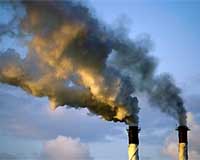 |
Aare, Sweden (AFP) July 23, 2009 With the EU striving to meet its ambitious climate goals, the European Commission quizzed member nations Thursday on whether to make targets for cutting energy use legally binding. EU Energy Commissioner Andris Piebalgs opened a debate with ministers at a meeting in Aare, central Sweden, on the bloc's goal to cut consumption by 20 percent by 2020 becoming a mandatory target. But many of the 27 countries are wary of imposing a new limit, conscious of the fact they already have a number of environmental commitments to honour. The EU decided last December to cut its greenhouse gas emissions by 20 percent compared to 1990 levels by 2020 -- the most ambitious target set thus far on the international stage. To achieve that overarching goal, energy use would have to come down by 20 percent while 20 percent of all energy consumed by Europeans would come from renewable sources. Only this last target is voluntary, meaning member states cannot be fined if they fail to reach it. "That's a bit strange," said Swedish Energy Minister Maud Oloffson. "From a Swedish point of view I think it's good if we can have a mandatory target for energy savings," Oloffson told AFP. Yet she admitted: "It's very difficult to find a way of measuring energy efficiency." The European parliament also backs making this goal obligatory in the EU. "When there is a legally binding target, we succeed," one European Commission official said. If there is no extra pressure put on the member states, the EU could fail in meeting its greenhouse gas targets, the official said. However, a senior diplomatic source told AFP that forcing countries to meet this target could backfire. "It would be inefficient and it would destroy Europe's climate objectives," the source said. Italy's Economic Development Minister Claudio Scajola said he did not oppose the 20 percent target but called for some flexibility. "It is important that the framework is flexible because there are different situations in each country," he said, pointing to the differing levels of economic growth between all EU member states. To make those crucial energy savings, buildings, transport and household appliances will need to be adapted to be "more efficient". Consumer behaviour will also need to change if that target is to be reached. Since 2006, EU members have been preparing their own strategies to tackle the problem of energy efficiency. But officials in Brussels believe they lack bite and they say further legislation to bring about the necessary change is needed. One measure intended to do so was at the centre of discussions here on Thursday -- a plan to introduce an EU-wide energy efficiency label for all buildings. The aim is to encourage landlords to spend money on making their property more eco-friendly, something which is difficult to do when their tenants are the ones paying the electricity bills. According to the European Commission, homes and offices are responsible for 40 percent of emissions of carbon dioxide, the main gas responsible for global warming, across the EU. Under the commission's proposals, all buildings put up for sale or on the rental market would have to supply information on the levels of insulation, CO2 emissions and advice on how to make further energy savings. The EU has already introduced one such measure to encourage homeowners to cut back on energy bills: the sale of traditional light bulbs will be banned from September 1, 2012, steering consumers towards their energy-saving equivalents, which use five times less electricity. Share This Article With Planet Earth
Related Links
 French panel to recommend carbon tax on fuel
French panel to recommend carbon tax on fuelParis (AFP) July 22, 2009 A French experts' panel is to recommend introducing a carbon tax on fuel from January 2010, as part of a government drive to slash global warming emissions, the group's head said on Wednesday. The French government announced plans for a new Climate-Energy Contribution, aimed at steering consumers and business away from energy-hungry goods and services, following a nationwide environment conf ... read more |
|
| The content herein, unless otherwise known to be public domain, are Copyright 1995-2009 - SpaceDaily. AFP and UPI Wire Stories are copyright Agence France-Presse and United Press International. ESA Portal Reports are copyright European Space Agency. All NASA sourced material is public domain. Additional copyrights may apply in whole or part to other bona fide parties. Advertising does not imply endorsement,agreement or approval of any opinions, statements or information provided by SpaceDaily on any Web page published or hosted by SpaceDaily. Privacy Statement |